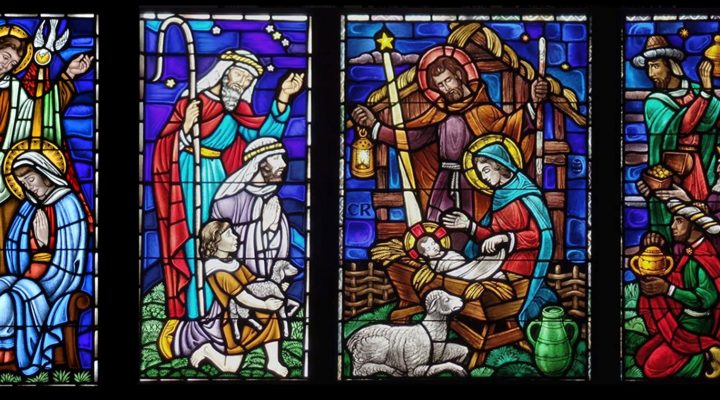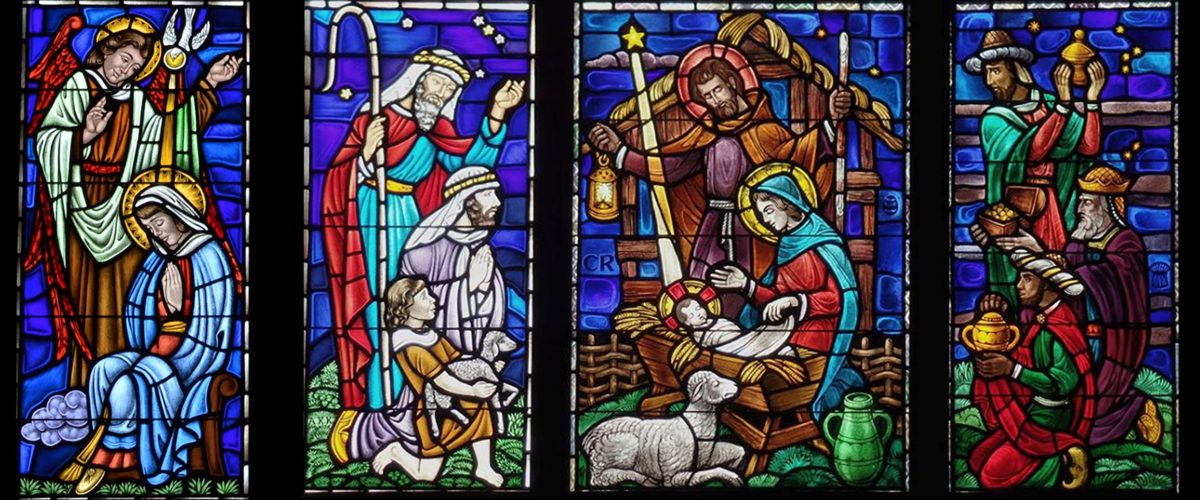BNG is pleased to partner with Baker Publishing Group and Perkins School of Theology at SMU to present a twice-weekly Advent reflection series written by Jack Levison. The reflections will be published every Tuesday and Thursday throughout the season.
The story of Jesus’ birth is really two stories. The first two chapters of Matthew’s Gospel could hardly be more different from the first two of Luke’s Gospel.
Matthew’s birth stories are taut with mathematical precision, like the work of ancient astrologers, who navigated deserts and seas, oceans and mountains, by calculating the stars and their movements. One degree miscalculated could bring devastation and disaster. If Matthew writes of magi and a brilliant star settling over a nondescript stable, he writes, too, like one of the magi, with astronomical fastidiousness, with immense control, as if life depended upon it, which it did for ancient sailors and nomads. Even Matthew’s genealogies occur in three precise sets of 14 generations each, as if to say, “You should have known this would happen!” You could have counted on it.
“The stories surrounding Jesus’ birth, five in all, happened to fulfill what had been spoken earlier by Israel’s prophets.”
The stories he tells, too, are crisp and methodical. He tells five of them — we are back to prime numbers, this one evoking the five books of Torah, the Pentateuch — each one bristling with accuracy. These are not random stories collected ad hoc but stories collated, specially selected, gauged to drive home one point: the stories surrounding Jesus’ birth, five in all, happened to fulfill what had been spoken earlier by Israel’s prophets.
When we read Matthew’s genealogies and birth stories, which open the curtain to the drama ahead, we are audience to an algorithm, captives to theological calculation. Numbers don’t lie — at least not these numbers, Matthew points out with 42 generations, five stories, two parents, and one child.
Compare this with Luke’s take on the action surrounding Jesus’ birth, which, so unlike Matthew’s Gospel, bursts with the unfathomable. The birth of a baby to an old couple is so shocking that the old man is struck dumb until his son’s birth. Dumbstuck, he simply cannot fathom what has happened through his own rumpled body or what is happening to his wife’s geriatric body, over whom the Holy Spirit runs roughshod.
Then there is the young unmarried woman, who is just as shockingly pregnant. “How can this be?” she asks. It’s a wonder that leaves one wondering.
All these people, old Zechariah and Elizabeth, along with young Mary — Joseph is nowhere to be seen, not yet, anyway — are shocked and elated at this pair of births. Each of them, too, has something to say. Something full of praise and blessing and joy and glee.
“This is a time of yearning and surprise, expectation and bewilderment.”
So does Simeon, another old man who has waited and waited for this day. Simeon, who follows the poor young parents into the temple and thanks God, finally, that his eyes have seen God’s salvation. This is a time of yearning and surprise, expectation and bewilderment. It is a time of birth and babies, of placentas and praise. Angels sing above, shepherds scuttle below. The joy is immeasurable.
Luke’s Gospel begins with an infinity of grace, Matthew’s with the calculus of hope. At the center of both sets of stories — Matthew’s measured five and Luke’s rush of canticles — lies an uncannily similar perspective. Not just the baby Jesus, whose birth, of course, is the glue. But a hue, too, an atmosphere, an ambience.
For both Matthew and Luke, the Jewish Scriptures are essential, indispensable for grasping what went on in those early, heady days. They are the leaven, the bread that is baking in the oven; a background scent, yes, but rich and undeniable and welcoming as well.
But there is something more to these stories. The Holy Spirit, too, was essential, indispensable for grasping what went on in those early, heady days.
And here is the rub. The Spirit was essential, not because something altogether new was happening, the birth of Christianity, let’s say, but because something old, ancient, ageless was coming to fruition. The Holy Spirit was central to the birth of Jesus, not so much to spawn something new as to spark something old, not so much to invent as to ignite.
 Jack Levison holds the W.J.A. Power Chair of Old Testament Interpretation and Biblical Hebrew at Perkins School of Theology at Southern Methodist University. He is known for his groundbreaking work on the Holy Spirit and topics both biblical and theological. This column is excerpted from his book An Unconventional God. Used here with permission of Baker Publishing, © 2020.
Jack Levison holds the W.J.A. Power Chair of Old Testament Interpretation and Biblical Hebrew at Perkins School of Theology at Southern Methodist University. He is known for his groundbreaking work on the Holy Spirit and topics both biblical and theological. This column is excerpted from his book An Unconventional God. Used here with permission of Baker Publishing, © 2020.


